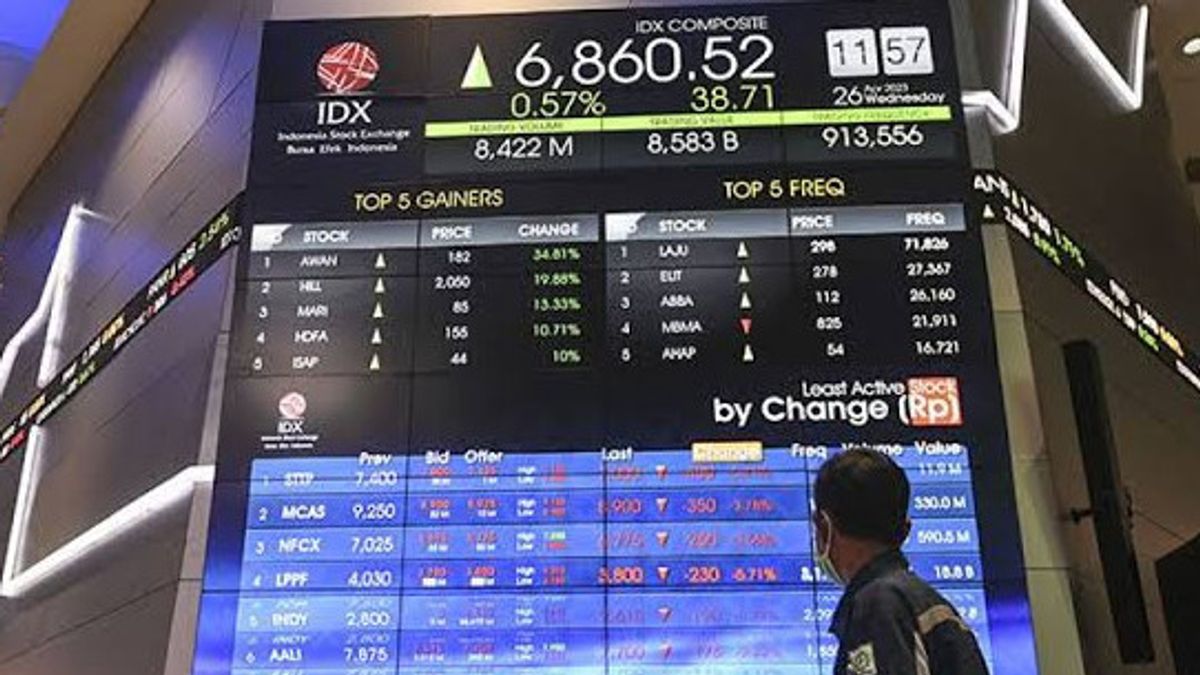JAKARTA - The Periodic Call Auction (PCA) policy in the Special Monitoring Board implemented by the Indonesia Stock Exchange (IDX) since March 25 has received attention from various market players. This is because stock trading with the PCA mechanism does not show a bid/offer in the orderbook (blind orderbook).
Responding to this, Panin Asset Management Director Rudiyanto said that trading stocks with the PCA blind orderbook mechanism can be seen from two sides. On the one hand, this mechanism can reduce the risk of stock price manipulation. This is due to the lack of information on the bid/offer. On the other hand, with limited bid/offer information and different mechanisms, it becomes less comfortable for investors who are accustomed to doing daily trading.
"To increase or lower prices significantly, speculators need price queue information and price volume. With the absence of this information and the price of being done at the same price, price manipulation requires a large amount of money," said Rudi on Monday, June 24.
Rudi revealed that the PCA mechanism with blind orderbooks is nothing new in the Indonesian capital market. Many stocks on the IDX are transacted with the PCA mechanism, it's just that it applies when pre-opening and pre-closing trade.
"The blind order or PCA has actually been around for a long time. It only applies in pre-opening and pre-closing," he said.
In addition, according to him, for investment managers, the PCA mechanism is normal because almost all index mutual fund transactions are carried out in the market during pre-closing. According to him, PCA's policy is crowded among retail investors because they are not used to the mechanism.
The PCA for mutual index funds is the main choice because transactions are usually carried out in the market during pre-closing. But for individual investors, it is possible that because of the socialization and understanding that is lacking and is fully valid throughout the day, it becomes a polemic among investors. For this reason, securities companies must be more diligent in explaining how PCA works to their customers," he explained.
The entry of shares into the Special Monitoring Board which causes transactions to have to go through PCA, continued Rudi, can also be a consideration for investors to select issuers before investing. Investors can see and understand why the issuer is included in the Special Monitoring Board.
SEE ALSO:
"For example, if there are stocks that fall into the Special Monitoring Board category, the reason needs to be considered. It could be because of non-fundamental technical factors, for example the circulation of stocks is less than 7.5 percent. It could also be a factor related to the fundamental and practice of Good Corporate Governance (GCG) companies such as being late in submitting financial reports, irregular movements so that they are suspended, in PKPU status, and so on. The reason for a stake in the Special Monitoring Board can be a kind of initial selection for investors to consider whether they still want to hold the shares or not," he explained.
In addition, Rudiyanto also responded to the revised stock criteria regulations on the Special Monitoring Board. According to him, the solution offered by the Exchange for issuers who want to leave the Special Monitoring Board can encourage the issuer's Good Corporate Governance (GCG) to be better.
One of them is distributing cash dividends. So if for example the company is good, but goes to the Special Monitoring Board, there is a way to distribute cash dividends. That means indirectly, the Special Monitoring Board demands a better GCG than the issuer. Shareholders can also propose this in a GMS organized by the Company," he concluded.
The English, Chinese, Japanese, Arabic, and French versions are automatically generated by the AI. So there may still be inaccuracies in translating, please always see Indonesian as our main language. (system supported by DigitalSiber.id)















